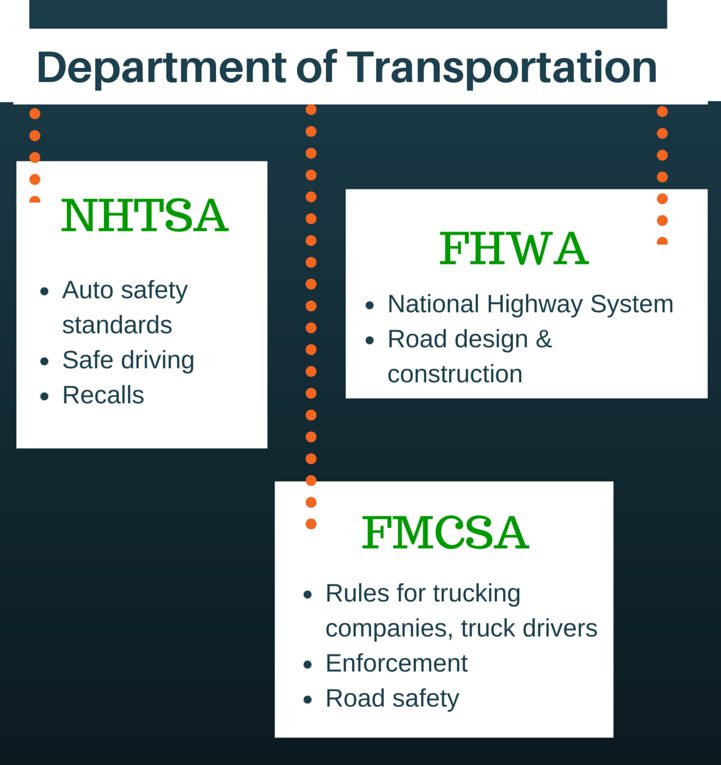The U.S. Department of Transportation (U.S. DOT, or DOT) is the federal government agency in charge of transportation planning, funding, and safety.
The top priorities at DOT areto keep the traveling public safe and secure,increase their mobility,and have our transportation system contribute to the nation’s economic growth. – transportation.gov
What does the Department of Transportation do?
- Plan for national infrastructure.
Big national projects—like building or maintaining interstate highways—don’t start with state and local governments. They start with the USDOT creating the plan, and managing the process. - Set the standards for design, construction, and safety.
The federal government sets the base safety standards for new bridges, for example. Those standards ensure that the bridges on I-5 in Washington have to meet the same safe design standards as the bridges along I-5 in Oregon. - Distribute funding for transportation projects.
Congress sets a federal budget for transportation projects. Then, it’s up to the USDOT to figure out how to prioritize and distribute that money to state and local governments.
The USDOT is at the top of the hierarchy of government agencies that manage roads, highways, airports, and seaports—incidently, all of the transportation infrastructure across the United States.
There are 11 DOT agencies, including the Federal Aviation Administration (FAA), and the Federal Railroad Administration (FRA).
The agencies that most directly affect the trucking industry:
National Highway Traffic Safety Administration (NHTSA);
Federal Highway Administration (FHWA); and
Federal Motor Carrier Safety Administration (FMCSA).
Who is in charge of USDOT?

Elaine Chao was sworn in as Secretary of Transportation on January 31, 2017.
USDOT is part of the Executive Branch of the federal government. It is headed by The Secretary of Transportation, a member of the President’s Cabinet.*
The Secretary of Transportation oversees those 11 government agencies, including the FMCSA, FWHA, and NHTSA.
Learn more about the Department of Transportation at usdot.gov.



Leave A Comment